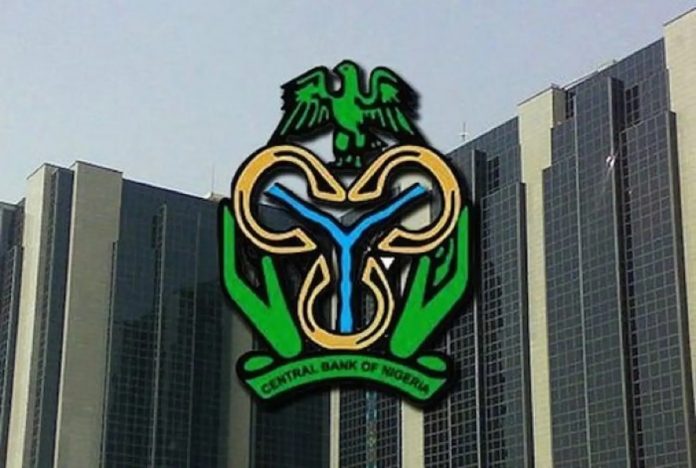The Central Bank of Nigeria (CBN) says it has disbursed N2.1 trillion to 426 projects to support the real sector of the economy.
Director, Corporate Communications Department of the CBN, Osita Nwanisobi, made this disclosure in Abuja yesterday during ‘CBN special day’ at the ongoing 17th Abuja International Trade Fair.
Represented by the Acting Director of the department, Mr. Sam Okogbue, Nwanisobi said “cumulative disbursements under the Real Sector Support Facility (RSSF) currently stood at ?2.10 trillion disbursed to 426 projects across the country”.
According to Nwanisobi, “under the Real Sector Facility, the CBN released the sum of N66.99 billion to 12 additional projects in manufacturing and agriculture.
“In the Micro, Small and Medium Enterprises (MSME) Sector, the CBN supported entrepreneurship development with the sum of N39.26 million under the Tertiary Institutions Entrepreneurship Scheme (TIES), bringing the total disbursement under the intervention to N332.43 million”.
He added that “recently, N20.17 billion was disbursed to 14 projects in healthcare, manufacturing, and services, bringing the cumulative disbursement under the 100 for 100 Policy on Production and Productivity (PPP) to N93.39 billion to 62 projects.
Nwanisobi stated that the CBN takes “the issue of export-readiness of businesses seriously”, hence it has always encouraged businesses to embrace the concept of Produce, Add Value and Export (PAVE).
“The PAVE concept he said “aims to make Nigerians consume what they produce, add value to such products and export the surpluses”.
“It is an initiative similar to the export-led industrialization policy of South-East Asia, which changed the economic fortunes of countries such as South Korea, Taiwan, Malaysia and Singapore” Nwanisobi explained.
He added that”PAVE is designed to be the key for fast-tracking a bucket of substitutes to crude oil export, encourages backward integration for the local production of items in which we have comparative advantage. If it worked for the South-East Asians, it surely can work for us in Nigeria”.
The CBN director then urged SMEs to ensure that their products and services are export-ready and can compete globally.
The Central Bank of Nigeria (CBN) in collaboration with the Bankers’ Committee in February 2022, initiated the RT200 FX Programme aimed at boosting earnings of stable and sustainable inflows of foreign exchange as well as insulating the Nigerian economy from shocks and other challenges arising from foreign exchange shortages.
So far, “the initiative has started yielding the expected results as importers and exporters have been taking advantage of the payment of incentives of N65 for every US$1 repatriated and sold at the I&E Window to authorized dealer banks for other third-parties’ use and N35 for every US$1 repatriated by exporter for own use on eligible transactions” Nwanisobi revealed.
Earlier in his address, the President of the Abuja Chamber of Commerce and Industry, Dr. Al-Mujtaba Abubakar, praised the CBN for coming to the rescue of MSMEs.
According to him, “despite the challenges facing the economy of Nigeria, the Central Bank has been of great benefits to the SME sector by creating different financial platforms for them.”
The Central Bank he said “has come to the rescue of the nation by embracing developmental financing tools to assist businesses”.
He noted that “the many interventions of the CBN significantly restored GDP growth and created the resurgence of the non oil sector as a critical segment of GDP”.
The Abuja Chamber of Commerce and Industry (ACCI) he said “will continue to seek a new intervention with the adoption of Chambers of Commerce as platform for financial interventions to SMEs”.






